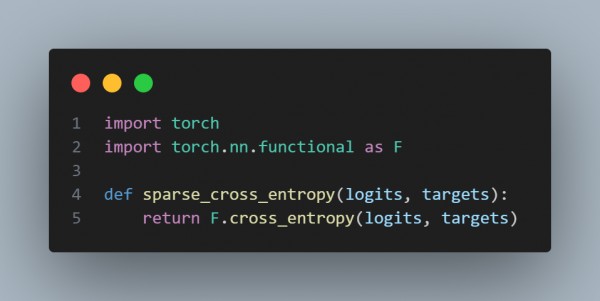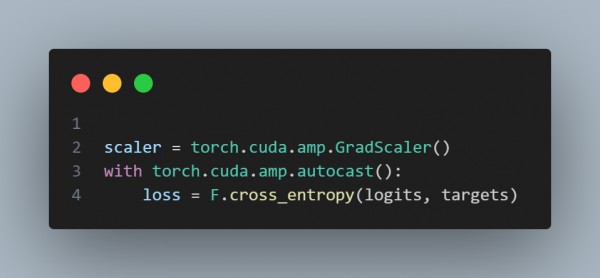For efficient cross-entropy loss calculation with large token vocabularies, You can refer to the following:
- Sparse Softmax Cross-Entropy: You can avoid computing softmax probabilities for the entire vocabulary by focusing only on the target tokens.

-
Negative Sampling: Instead of calculating probabilities for all tokens, use sampled negatives for approximation (e.g., in Word2Vec).
-
Softmax Approximation: For large vocabularies, techniques like hierarchical softmax or noise contrastive estimation (NCE) can be used.

-
Mixed Precision Training: Use torch.cuda.amp for lower precision (e.g., float16) to speed up operations.
- Logits Masking: Mask irrelevant tokens to reduce unnecessary computations in specific scenarios.
In the above techniques, Sparse softmax cross-entropy and softmax approximations like NCE are highly efficient for large token vocabularies.
Hence, using these techniques will allow you efficient cross-entropy loss calculation when working with large token vocabularies.
 REGISTER FOR FREE WEBINAR
X
REGISTER FOR FREE WEBINAR
X
 Thank you for registering
Join Edureka Meetup community for 100+ Free Webinars each month
JOIN MEETUP GROUP
Thank you for registering
Join Edureka Meetup community for 100+ Free Webinars each month
JOIN MEETUP GROUP